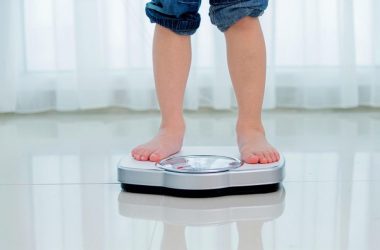In the pursuit of optimal health, the significance of respiratory health often takes a back seat, despite it being a crucial component of our overall well-being. Our lungs fuel us with oxygen, the most essential element for our cells to thrive and perform their functions. Enhancing respiratory health isn’t just about avoiding pollutants or quitting smoking; it’s also about integrating exercise and physical activity into our daily routines. This article delves into the transformative power of exercise on our lungs, offering practical tips and insights to breathe better and improve quality of life. Whether you’re a fitness enthusiast or someone looking to make a positive change, these guidelines will help you strengthen your respiratory system, making every breath count.
1. Understanding Respiratory Health
At its core, respiratory health refers to the efficiency and effectiveness of our lungs and other parts of the respiratory system. It’s about how well our lungs can supply oxygen to our blood and remove carbon dioxide from it. Good respiratory health means you’re less likely to experience breathing-related issues, enabling you to enjoy activities and exercise with ease. Enhancing your lung capacity and function is achievable through regular physical activity, which helps clear the airways, reduce inflammation, and improve the strength of respiratory muscles.
2. The Impact of Exercise on Lung Function
Incorporating regular exercise into your routine can have profound effects on lung function. Exercise increases the demand for oxygen, helping to strengthen the diaphragm and increase the efficiency of the respiratory system. Over time, this can lead to improved endurance and reduced breathlessness during physical activities. For individuals with respiratory conditions, such as pleural mesothelioma, exercise can play a vital role in managing symptoms and enhancing quality of life. It’s important to note that pleural mesothelioma impacts lung function significantly, making tailored exercises essential. Facts about this condition highlight the importance of a specialized approach to physical activity that accounts for the unique challenges it presents.
3. Tailored Exercises for Respiratory Health
Not all exercises are created equal when it comes to improving respiratory health. Activities like swimming, walking, and yoga are particularly beneficial as they focus on deep breathing and can help enhance lung capacity. For those dealing with respiratory conditions, low-impact exercises may be more appropriate. It’s essential to choose activities that match your current fitness level and health status, gradually increasing intensity to avoid overexertion. Consulting with a healthcare professional before starting any new exercise regimen is crucial, especially for individuals with underlying health issues.
4. The Role of Outdoor Activities
Engaging in outdoor activities can be incredibly beneficial for respiratory health. Fresh air and natural surroundings contribute to a sense of well-being and can improve lung function by providing a cleaner air environment compared to indoor spaces. Activities like hiking, cycling, and even gardening can boost your respiratory health, thanks to the combination of physical exertion and exposure to fresh air. However, it’s important to be mindful of air quality and pollution levels, especially for those living in urban areas or with pre-existing respiratory conditions.
5. Breathing Exercises and Techniques
In addition to physical activity, specific breathing exercises can significantly enhance lung capacity and efficiency. Techniques such as diaphragmatic breathing, pursed-lip breathing, and the Buteyko method can help improve oxygen exchange, control breathlessness, and strengthen respiratory muscles. These exercises are particularly useful for individuals with chronic respiratory conditions, as they can be done anywhere and require no special equipment. Incorporating breathing exercises into your daily routine is a simple yet effective way to support your respiratory health and overall well-being.
6. The Importance of Consistency
Consistency is key when it comes to enhancing respiratory health through exercise. Regular physical activity helps maintain the improvements in lung capacity and efficiency gained over time. Establishing a routine that incorporates various forms of exercise—cardiovascular activities, strength training, and flexibility exercises—ensures that you’re not only working on your respiratory health but also improving overall physical fitness. Setting realistic goals and tracking progress can motivate you to stay on track and make exercise a regular part of your life.
7. Managing Stress for Respiratory Health
Stress can have a negative impact on respiratory health, leading to tightened airways and difficulty breathing. Incorporating stress-reducing practices like meditation, mindfulness, or tai chi into your routine can help manage stress levels, thereby supporting lung function. These practices not only improve mental well-being but also encourage deep, controlled breathing, which is beneficial for the respiratory system. Reducing stress is an essential component of a holistic approach to improving respiratory health.
8. Nutrition and Respiratory Health
Good nutrition plays a crucial role in supporting respiratory health. A diet rich in antioxidants, vitamins, and minerals can help reduce inflammation in the respiratory system and protect lung tissue. Foods high in vitamin C, vitamin E, beta-carotene, and omega-3 fatty acids are particularly beneficial. Staying hydrated is also important, as water plays a key role in maintaining mucosal linings in the lungs. Incorporating a balanced diet alongside your exercise routine can amplify the benefits to your respiratory health.
9. Monitoring Air Quality
Exercising in environments with clean air is essential for protecting your respiratory health. Poor air quality can exacerbate breathing difficulties and negate the benefits of outdoor physical activity. Pay attention to air quality forecasts, especially on days with high pollution levels or during wildfire season. On days when outdoor air quality is poor, consider indoor exercises or visit areas with better air quality to ensure your efforts to improve respiratory health are not compromised.
10. Seeking Professional Guidance
Before embarking on any new exercise regimen, especially for those with existing respiratory conditions or other health concerns, it’s important to consult with a healthcare professional. They can provide tailored advice and recommend specific exercises that are safe and effective for your situation. For individuals with respiratory diseases, pulmonary rehabilitation programs offer structured exercise plans and education on managing symptoms, which can be incredibly beneficial.
Conclusion
Improving your respiratory health through exercise and physical activity is a journey that requires patience, dedication, and a holistic approach. By understanding the importance of respiratory health, tailoring exercises to your needs, embracing the outdoors, practicing breathing techniques, and maintaining consistency, you can significantly enhance your lung function and overall well-being. Remember, integrating stress management, good nutrition, and awareness of air quality into your routine will further support your respiratory health goals. Always consult with healthcare professionals to ensure your exercise plan aligns with your health status and needs. Embrace the journey to better breathing, and enjoy the myriad benefits that come with a healthy respiratory system. Breathe better, live better, and empower yourself to reach new heights in your health and fitness journey.










